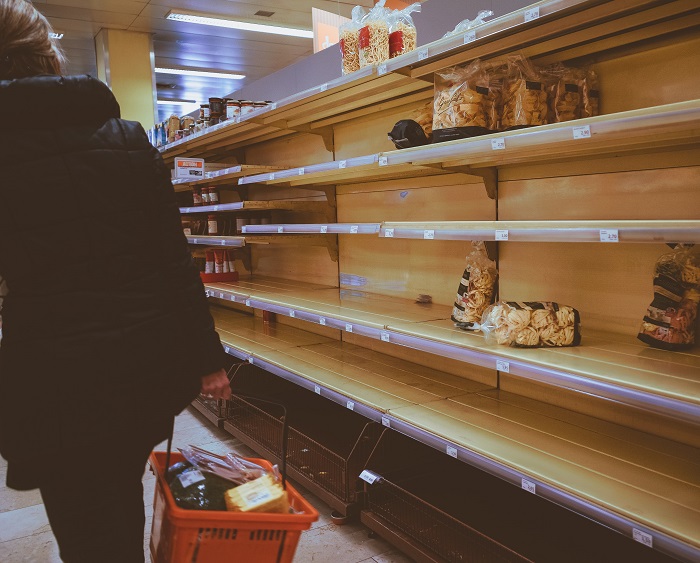We have all seen or heard the stories. Maybe we have told some ourselves? I certainly have. “It was unbelievable at the shops! Empty shelves everywhere, the carpark was a nightmare!”
As inconvenient and even stressful as this is, there are of course impacts for some people that are harder to see in the struggle to adapt to the impacts of COVID-19. Many of us know people who are immuno-compromised, have an existing medical condition or are simply in an older age bracket that is more vulnerable to the virus.
Perhaps we know people who have an anxiety related illness that is exacerbated by this extra layer of stress – I know several people for whom this is quite a debilitating ‘straw on the camel’s back’.
I also think of the woman who was not allowed to return overseas to see her mother before she died of coronavirus. She was not refused because of fear of spreading the infection (she would have gladly self-isolated as long as needed) but because she cannot access a visa that allows her to travel, despite being found to be a refugee. A safer outcome, but also a heartbreaking doubling of trauma and grief.
How then are we to be the church in this time of Coronavirus?
As a start, we are still asked to love our neighbour.
To love the anxious shopper, the isolated neighbour, the unemployed stranger.
But to me that also includes the call to dismantle the unfair systems that the Coronavirus is amplifying in the experiences of the already anxious, isolated and unemployed.
We think of people who are precariously employed in the ‘gig economy’ or casual workforce – they should be employed properly in the first place.
The people on Newstart and Youth Allowance – they should have the ability to live above the poverty line anyway.
People who are refugees or seeking asylum – they should have access to proper visas regardless.
I could go on. There are many people who are particularly vulnerable to the impacts of the coronavirus because the unfair systems around them have stripped away their supports.
If there are gaps in our social safety net that widen in times of great stress, if our public institutions and charities are struggling to cope, it is not just because of the scale of the problem at hand but because they have been weakened and stretched from the continued eroding of funding.
If there are people feeling like they have to compete with each other for basic items, a doctor’s appointment, or even a job, it is not only because of the wide scale surge in need but because we have been conditioned to fight against each other for our place – because apparently that’s how the market works.
As a church I believe we can call bunkum on these false depictions of the problem. We are not defined by competition or market forces. We are witness to the benefits of love-powered co-operative human effort. That is the story of the church at its best. God has loved us that we might love each other, our neighbour, even our enemies.
More important than dismantling systems of injustice, the church is intended to be a model of an alternative community of hope and love, since the best critique of the bad is the practice of the better. The church has certainly got a long way to go if this is to be the case, but we certainly have the building blocks in our DNA for the creation of a radically inclusive and compassionate community.
I am tired of the common deferring to profit-motivated companies and undemocratic philanthropists to solve our problems.
It is us, the people, who have the power to support each other. It is the church that has the power to love transformationally. It is those who have been downtrodden who hold the solutions to their own problems and with whom Christ identifies.
It has been really heartening to see acts of solidarity and kindness emerging in response to the Coronavirus. Some friends have been dropping letters like this to their neighbours offering assistance. Others have set up regular online video chats with people who are self-isolating or organising simultaneous movie-watching (connecting online through group-chats). Some have simply been sharing surplus toilet paper.
We need to keep looking out for those who were already struggling or feeling on the outer. We need to reach out to those around us and support each other. We need to defend the public institutions and safety nets that help to sustain people in crisis, provide reliable information, conduct valuable research, and give access to healthcare for all.
We need to live as generously as possible. We need to be the church by loving our neighbour – as always.
Geoff Bice, Social Justice Consultant for the Uniting Church WA
